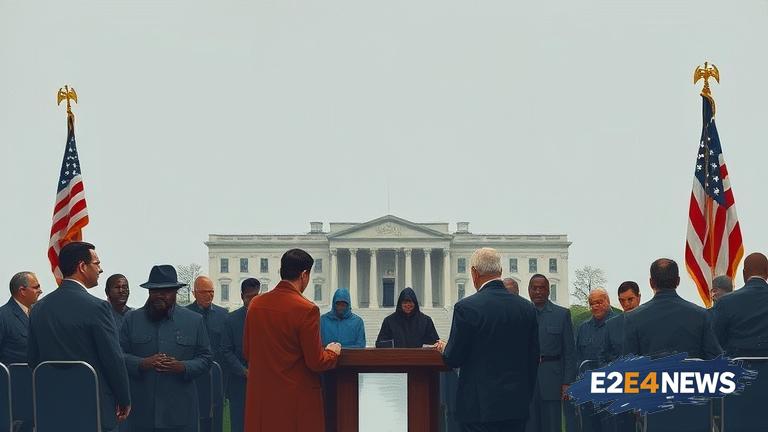The US Department of Justice has made a formal request to the state of Illinois to provide personal information of voters, including names, addresses, and voting history, by September 1. This move has raised concerns among voter advocacy groups and privacy experts, who argue that such a request could potentially lead to voter suppression and compromise the privacy of voters. The Department of Justice has cited the need to investigate voter fraud and ensure the integrity of the electoral process as the reason behind the request. However, critics argue that such a request is unnecessary and could be used to target specific groups of voters. The state of Illinois has not yet responded to the request, but officials have expressed concerns over the potential implications of complying with the demand. The request has also sparked a debate over the balance between ensuring the integrity of the electoral process and protecting the privacy of voters. Some experts argue that the Department of Justice could use the information to identify and target specific groups of voters, potentially disenfranchising them. Others argue that the request is a necessary step to prevent voter fraud and ensure that the electoral process is fair and transparent. The issue has also raised concerns over the potential for voter suppression, particularly among minority groups. Voter advocacy groups have expressed concerns that the request could be used to intimidate or discourage certain groups of voters from participating in the electoral process. The Department of Justice has not provided any evidence of widespread voter fraud in Illinois, which has further fueled concerns over the motivations behind the request. The state of Illinois has a history of protecting voter privacy, and officials have expressed concerns over the potential implications of complying with the demand. The request has also sparked a debate over the role of the federal government in overseeing state electoral processes. Some experts argue that the federal government should play a more active role in ensuring the integrity of the electoral process, while others argue that such oversight could be used to undermine the autonomy of state governments. The issue has also raised concerns over the potential for partisan politics to influence the electoral process. The Department of Justice has been criticized for its handling of voter fraud cases in the past, and some experts argue that the request is motivated by a desire to advance a partisan agenda. The state of Illinois has until September 1 to respond to the request, and officials have expressed concerns over the potential implications of complying with the demand. The request has also sparked a debate over the potential consequences of non-compliance, including the potential for legal action against the state. The issue has also raised concerns over the potential for other states to be targeted with similar requests, potentially leading to a nationwide controversy over voter privacy and electoral integrity. The Department of Justice has not commented on whether similar requests will be made to other states, but experts argue that such a move could have significant implications for the electoral process. The request has also sparked a debate over the potential for technology to be used to compromise voter privacy, including the potential for hacking and data breaches. The state of Illinois has expressed concerns over the potential for cyber threats to compromise the electoral process, and officials have argued that the request could potentially exacerbate such risks. The issue has also raised concerns over the potential for social media to be used to spread misinformation and undermine the electoral process. The Department of Justice has not commented on whether it will use social media to investigate voter fraud, but experts argue that such a move could have significant implications for the electoral process.
